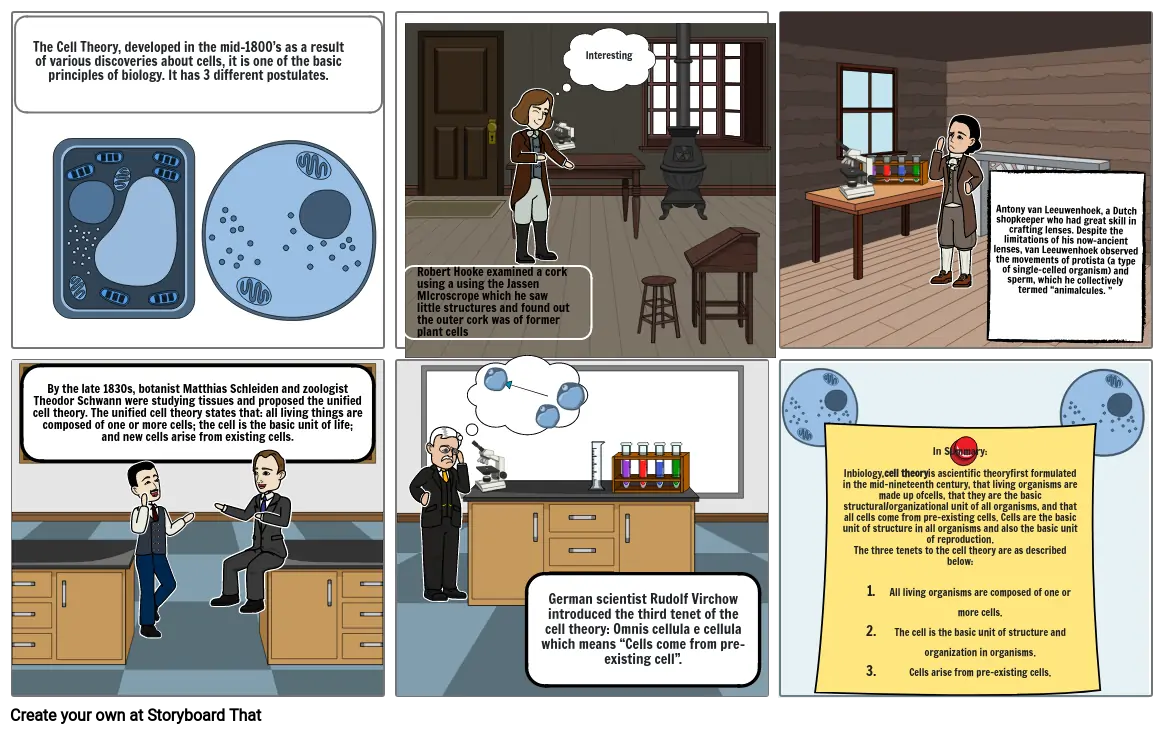THe Cell Theory and it's postulates

Texte du Storyboard
- The Cell Theory, developed in the mid-1800’s as a result of various discoveries about cells, it is one of the basic principles of biology. It has 3 different postulates.
- Robert Hooke examined a cork using a using the Jassen MIcroscrope which he saw little structures and found out the outer cork was of former plant cells
- Interesting
- Antony van Leeuwenhoek, a Dutch shopkeeper who had great skill in crafting lenses. Despite the limitations of his now-ancient lenses, van Leeuwenhoek observed the movements of protista (a type of single-celled organism) and sperm, which he collectively termed “animalcules. ”
- By the late 1830s, botanist Matthias Schleiden and zoologist Theodor Schwann were studying tissues and proposed the unified cell theory. The unified cell theory states that: all living things are composed of one or more cells; the cell is the basic unit of life; and new cells arise from existing cells.
- sd
- German scientist Rudolf Virchow introduced the third tenet of the cell theory: Omnis cellula e cellula which means “Cells come from pre-existing cell”.
- In Summary:In biology, cell theory is a scientific theory first formulated in the mid-nineteenth century, that living organisms are made up of cells, that they are the basic structural/organizational unit of all organisms, and that all cells come from pre-existing cells. Cells are the basic unit of structure in all organisms and also the basic unit of reproduction.The three tenets to the cell theory are as described below:All living organisms are composed of one or more cells.The cell is the basic unit of structure and organization in organisms.Cells arise from pre-existing cells.
Plus de 30 millions de storyboards créés

